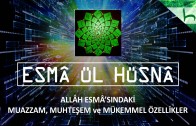48. Al-Fath – Decoding The Quran – Ahmed Hulusi
www.ahmedhulusi.org/en/
“48. Al-Fath – Decoding The Quran – Ahmed Hulusi”
In terms of its literal meaning, chapter Fath explains the Hudaibiya Treaty and the conquering of Mecca. But the scope of its meaning is certainly not limited to this.
The deeper meaning of this chapter pertains to much profound and elevated truths known only to the qualified ones.
It is not possible to disclose these, but I wish not to move on without sharing some insight in regard to the deeper meaning of the first three verses, for they point to a significant truth of Sufism.
Let us re-read these three verses:
1. Indeed, we have given you the Clear Conquest (fath; the clear observation of the system of the reality)!
2. That Allah may forgive (cover/conceal) your past and (in spite of the conquest – fath) future misdeeds (the veils resulting from corporeality) and complete His favor upon you and guide you to the experience of your reality (essence).
3. Allah will lead you to an unmatched mighty victory!
Since the obvious literal meaning of this chapter can be found in every translation and interpretation of the Quran, there is no need for me to repeat it here. As for the hidden inner meaning that Allah has allowed me to understand in line with the clarity and irfan with which He has blessed me…
The word ‘fath’ means the opening or conquering of something seemingly unattainable. As such, the greatest attainment in the worldly life is to conquer the Intermediary Realm (barzakh), which is a stage of the life after – and the only way for this is to ‘die while living,’ as the Sufis would say!
There are two types of conquest (fath): external and internal…
Internal conquest is also of two types:
a. Self-conquest
b. Fath-i Mubin
Essentially, there are seven degrees of conquest. One is said to have attained conquest when the first of these degrees is actualized.
Conquest is not a state that can reached by personal effort.
It is a state of living in this world with the qualities of the spirit rather than the body. That is to say, while living in this body and this dimension, the person is relinquished from his bodily ties as though he has died and moves on to the life of the spirit. It is the complete experience of the event to which Sufism refers to as “dying before death.” As far as we have been taught, the number of people who are able to attain this state, called the fath-i nurani do not exceed forty individuals.
Conquest can be further categorized as:
1. Fath-i dhulmani
2. Fath-i nurani
Fath-i dhulmani can become apparent on all people, whether Muslim or not. What appears to be the result of ‘enlightenment’, especially observable on Hindu and Buddhist sages and monks, is generally this state. In religious terms it is called istidraj, which refers to supernatural states that are driven by ego and jinn-based energies, observable on those who lack the light (nur) of faith.
There are two significant signs of fath-i dhulmani. Firstly, a person in this state does not accept Muhammad (saw) as the Rasul of Allah, and secondly, he is not saved from the illusion of having a separate individual self!
Those who reach the state of fath-i dhulmani may know your past and be present at a few places simultaneously. They may see the states of the deceased and communicate with the jinn, along with other seemingly supernatural behaviors.
Those who reach the state of fath-i nurani show similar abilities, but their distinction is, after adapting to this life in a short time, they continue to develop and reach the third station of fath where they meet the Rasul of Allah (saw) and other Nabis and saints to learn of the states of the intermediary realm (barzakh), after which they take their place among the Rijali Ghayb (Men of the Unknown).
When one reaches the state of fath-i mubin, it is essential that they are able to correctly maintain this state. That is, when one experiences fath-i mubin and is freed from the constraints of the body, it is easy to get carried away and completely sever one’s bodily ties, leading to death in a literal sense.
So long as physical death does not occur, one who reaches the state of fath-i mubin continues to progress by increasing their strength and brain capacity and elevating their level of knowledge…
No further information regarding this state may be disclosed here, so let us continue to explore the meaning of the above verses:
“Indeed, we have given you the Clear Conquest (fath; the clear observation of the system of the reality)!” (Quran 48:1)
This ‘definite and clear conquest’ may not be attained through personal effort; it is entirely a favor from Allah. Thus, the person lives in the world as a citizen of the intermediary realm, aware of all the intrinsic meanings and wisdom behind the things of the world, and no misdeed will be produced by them.














